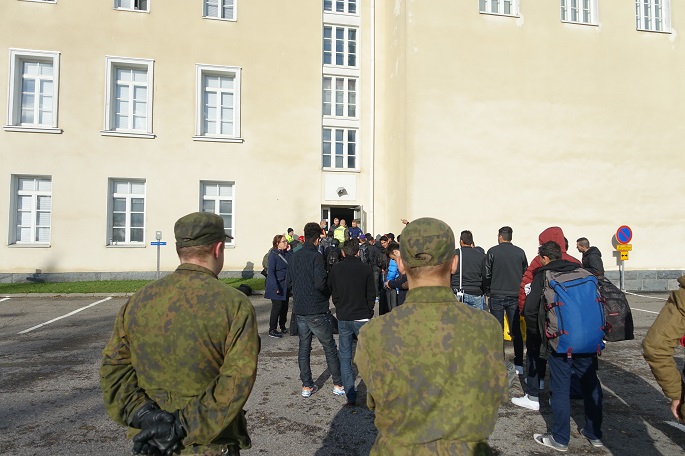Experts stress importance of solving societal problems
Published : 24 Aug 2017, 18:49
As the vulnerability of rejected asylum seekers in Europe has been considered a risk factor for extremist violence, Finnish experts have underlined the bigger picture of solving societal problems that cause emigration and minimizing frustration among young men in particular.
An asylum seeker, known as an 18-year-old Moroccan, allegedly killed two Finnish women and wounded eight others in Turku on August 18. The stabbings were one of a series of similar attacks in European cities recently. It has aroused discussion of the option to strengthen security legislation in the Nordic country.
Karin Creutz, a Finnish researcher at Helsinki University, warned against the presumption that strict legislation could serve as a tool against extremism.
Interviewed on national radio Yle on Tuesday, Creutz underlined the need to take measures to combat societal problems.
Creutz gives the comments at a time when "tough solutions" have come up in the wake of the Turku incident. Suggestions by politicians have ranged from enforced isolation of rejected asylum seekers on islands, to special terrorist legislation and fast removals of asylum seekers after the rejection of their applications.
Tarja Mankkinen, a specialist at the Finnish Ministry of the Interior, reminded that at this moment not much is known about the background of the events in Finland. "We do not know the motives. No one has announced responsibility. We do not know either whether the young Moroccans have had contacts outside Finland for their action or radicalized on their own," she noted.
"The moment after an initial rejection of an asylum application is opportune for the person to be radicalized", she said. "A rejected applicant sees no hope, and in that situation even terrorism can be as viable as any other alternative", Mankkinen noted.
She said the European Union warned earlier this year that the organization ISIL is targeting young asylum seekers for recruitment. According to unconfirmed reports, the main suspect of the Turku attacks is a rejected asylum seeker who had filed an appeal, still pending. He was said to be sympathetic with the ISIL.
Researcher Creutz said it is important that the overall circumstances of asylum seekers would be humane. "They should be allowed to get employed and avoid the risk of dropping out of the system", she said. She pointed out that suicidal behaviour among asylum seekers in Finland has increased.
Mankkinen noted that the Interior Ministry is concerned about the situation of rejected asylum seekers and the Justice Ministry is preparing alternatives for the rejected people. "The issue is not only possible violence, but these people can easily fall victims to mistreatment in the labour market or end up in criminality. The problem in Finland is now how to create more security without boosting further prejudice against asylum seekers."


